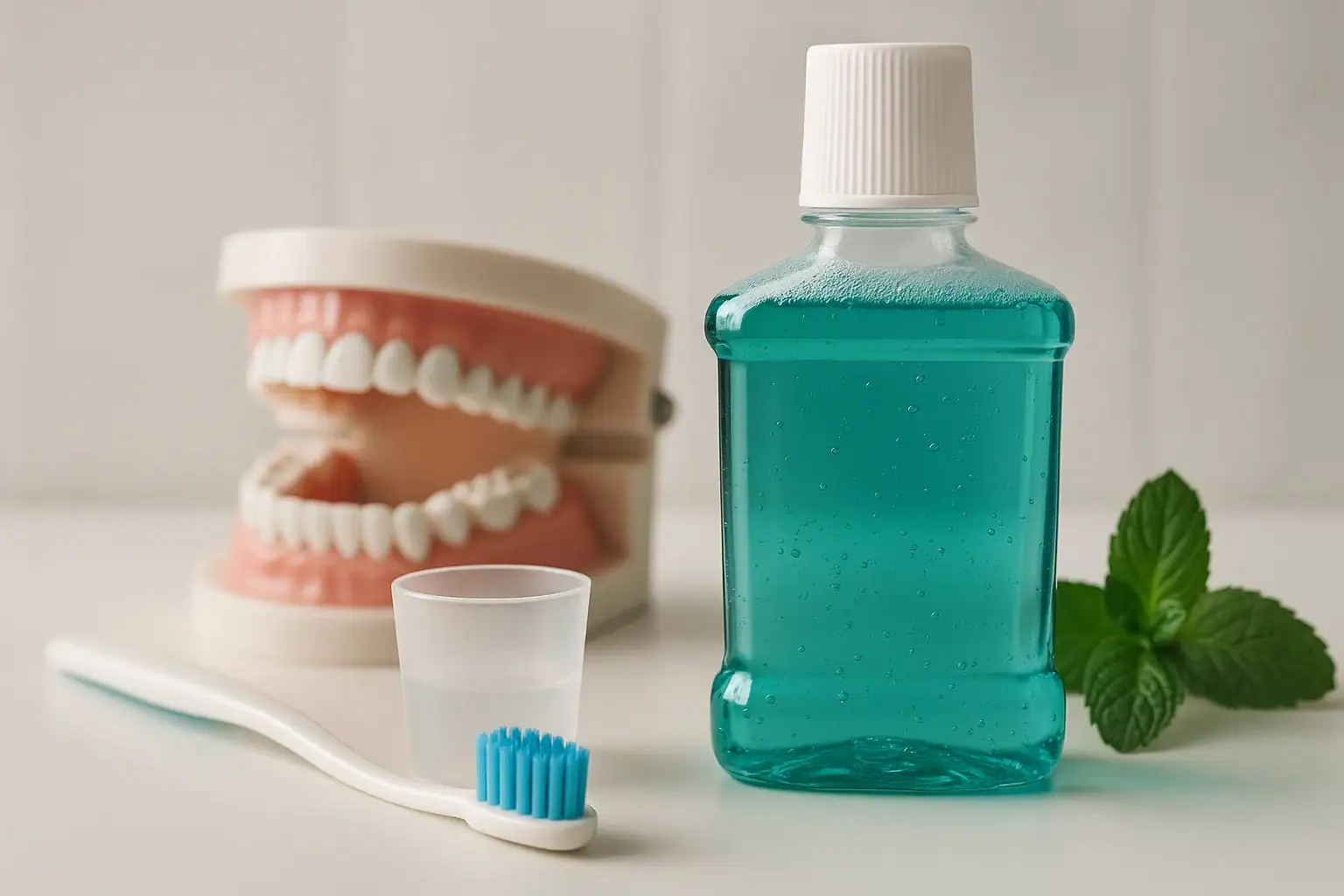Menu
Free Consultation

Maintaining oral hygiene involves more than just brushing and flossing. Antibacterial mouthwash is a powerful tool in the fight against plaque, gum disease, and bad breath. But what exactly is it, and how does it differ from other types of mouthwash? This guide covers everything you need to know about antibacterial mouthwashes—from ingredients and uses to comparisons and best practices.
Antibacterial mouthwash is a liquid oral hygiene product formulated to kill or inhibit the growth of bacteria in the mouth. It's often recommended for individuals dealing with:
Common active ingredients include chlorhexidine, cetylpyridinium chloride, and essential oils.
FAQ: What is antibacterial mouthwash?
Answer: It’s a mouth rinse designed to reduce or eliminate bacteria that contribute to oral health issues.
Antibacterial mouthwashes work by disrupting the bacterial cell membranes, thereby preventing their growth or killing them outright. Depending on the formulation, it may also reduce inflammation and help the healing of gum tissue.
While often used interchangeably, these two types of mouthwash are not the same:
Understanding this difference can help users choose the right product for their needs.
| Brand | Active Ingredient | Best For | Alcohol-Free |
|---|---|---|---|
| Listerine Total Care | Essential oils | General antibacterial use | No |
| Corsodyl | Chlorhexidine gluconate | Gum disease, gingivitis | Yes |
| Colgate Peroxyl | Hydrogen peroxide | Infections, minor irritation | Yes |
FAQ: What is the best antibacterial mouthwash?
Answer: It depends on your needs. Listerine is good for general use, while Corsodyl is ideal for gum disease.
Children aged 6 and above can use antibacterial mouthwash under adult supervision. Pediatric-specific versions are formulated with milder ingredients and less intense flavors.
Avoid overuse and consult a dentist for long-term application.
While bacteria can adapt, true resistance is rare with mouthwash. Still, prolonged use of chlorhexidine is generally recommended only under dental supervision.
Many people wonder when to use mouthwash in their routine. While practices may vary:
Yes, antibacterial mouthwash can significantly reduce halitosis by targeting odor-causing bacteria, especially those found on the back of the tongue and between teeth.
Is Biotene mouthwash antibacterial?
Answer: No, it is primarily a moisturizing rinse for dry mouth and does not have antibacterial agents.
Is Listerine an antibacterial mouthwash?
Answer: Yes, it contains essential oils with proven antibacterial properties.
Can I use antibacterial mouthwash every day?
Answer: Most are safe for daily use, but consult your dentist for strong formulations like chlorhexidine.
Can mouthwash replace brushing?
Answer: No. Brushing and flossing are irreplaceable parts of oral hygiene.
Antibacterial mouthwash is an excellent addition to a complete oral hygiene routine. By reducing harmful bacteria, it supports gum health, freshens breath, and helps prevent infections. However, it should be used as a complement not a substitute for brushing and flossing.
Consult your dental professional to choose the best mouthwash for your specific needs and enjoy a healthier, fresher smile every day.
